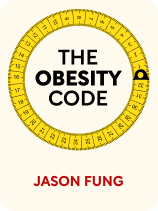

This article is an excerpt from the Shortform book guide to "The Obesity Code" by Jason Fung. Shortform has the world's best summaries and analyses of books you should be reading.
Like this article? Sign up for a free trial here .
What is the main function of the hormone insulin? What happens when your insulin stops functioning properly?
Insulin is a hormone, a molecule that transmits “messages” within your body. Its function is to deliver glucose to cells to use for energy and take the excess glucose to the liver.
Learn about the role of insulin in the body and what happens when it stops working as intended.
Understanding Insulin
Your pancreas releases insulin in response to increased glucose in your blood. Glucose is the body’s primary energy source, found in any foods with carbohydrates—apples, bread, carrots, cake, rice, and many others.
The function of the insulin hormone is three-fold:
- Step #1: Insulin delivers glucose to your cells for energy. Much like a “key,” insulin signals cells to open up and take in glucose for energy.
- Step #2: If there’s excess glucose, insulin takes it to the liver. There, the liver converts the glucose into glycogen, a large string of glucose molecules, for short-term storage.
- Step #3: If there’s still excess glucose, it becomes fat. The liver converts any remaining glucose into fat for long-term storage.
(Shortform note: In addition to insulin, multiple micronutrients contribute to the above processes. Vitamins B2 and B3 help in deriving energy from food, while vitamin B7 helps cells metabolize glucose and vitamin B6 helps convert stored sugars into energy for use throughout the body.)
Fung continues to say that a couple of hours after you’ve eaten, your insulin levels drop and return to normal. At this point, your body has processed the glucose, or food energy, from your last meal, and it’s stored away any excess. You’ll first use the glucose in your cells for energy, running your body on what you’ve eaten. When that blood glucose runs out, your liver converts its stored glycogen back into glucose and sends it into the bloodstream for use as your second energy source.
If you continue not to eat, your glycogen stores will run out and your body will turn to its third energy source—your fat stores. Beyond 24 to 36 hours, your body will convert stored fats (triglycerides) into glucose and fatty acids, which most of your body can use, as well as ketones, an energy source for your brain. (Shortform note: Fasting isn’t the only way to activate ketosis and gain the benefits of ketones. Many people use the ketogenic diet, reducing carbs to 5%-10% of their calories and eating around 60% fats, in order to keep blood glucose very low and induce ketosis without fasting.)
Under normal, healthy conditions, Fung says you should cycle between states of feeding and states of fasting, and this will keep your insulin and blood sugar levels balanced. In turn, this keeps your weight balanced—normal insulin levels keep your set weight at a healthy point.
(Shortform note: For most of history, we spaced out our meals enough to keep insulin levels balanced. One major factor that changed this was the rise of fast food, which encouraged Americans to eat on the go—effectively spiking insulin levels throughout the day by allowing people to eat whenever.)
Poor Diet and Frequent Eating Unbalance This System
Fung explains that this system falls out of balance when we eat the wrong foods and when we eat too frequently. Both of these activities increase insulin levels. High and persistent insulin levels cause insulin resistance, a condition wherein the body needs more insulin per cell to successfully deliver glucose for energy.
Insulin resistance is a self-perpetuating feedback loop: The more resistant you get, the more insulin your body produces. The more insulin your body produces, the more resistant you get. And as you become insulin resistant, your chronically high insulin levels raise your set weight, causing obesity.
To emphasize that insulin causes obesity, Fung explains that you can make someone fat by regularly dosing them with insulin. As Fung witnessed, you can see this in diabetic patients who take insulin daily—weight gain is a ubiquitous side effect.

———End of Preview———
Like what you just read? Read the rest of the world's best book summary and analysis of Jason Fung's "The Obesity Code" at Shortform .
Here's what you'll find in our full The Obesity Code summary :
- Why everything we were taught about obesity is wrong
- The theory of obesity as a hormonal disorder that causes overeating
- Why dieting doesn’t work and exercise actually has little impact on weight loss






